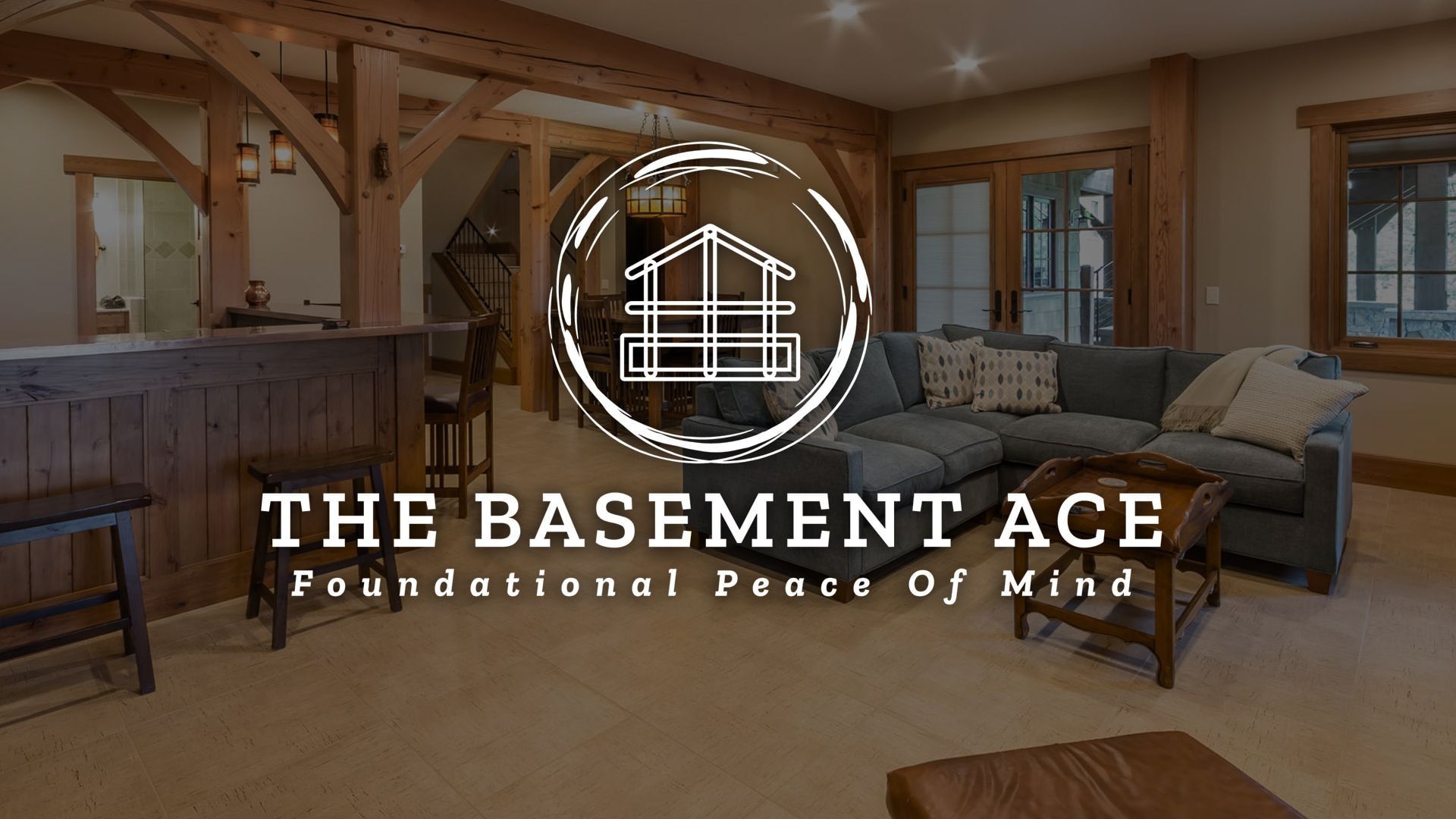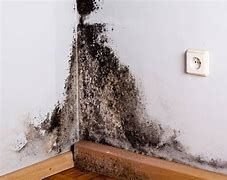Understanding Bowing Basement Wall Repair Cost: Your Comprehensive Guide
Concerned about a bowing or bowed basement wall repair cost? Repair costs can range from $400 to over $1500 per repair method, impacted by severity, method, and wall size. Our comprehensive guide explains these variables in detail, offering you a clear roadmap for navigating the financial aspects of basement wall repairs.
Key Takeaways
- Repair costs for bowing basement walls vary widely based on the severity of bowing, repair method, and wall dimensions, with methods ranging from simple fixes to advanced solutions like helical tiebacks for severe cases.
- When it comes to foundation repair, there are situations where involving a structural engineer is necessary. At The Basement Ace, we are here to assess your needs and provide tailored solutions for homes and businesses in New Hampshire and Maine.
- Additional expenditures such as securing permits, ensuring code compliance, water damage repairs, and drainage system installations can add to the overall cost of foundation repair beyond the price of the main repair method.
Exploring the Cost Factors for Bowing Basement Wall Repair
There’s no one-size-fits-all pricing when it comes to repairing bowing basement walls. Costs can vary significantly based on factors such as the severity of the bowing, the chosen repair method, and the dimensions and exterior conditions of the wall.
But how do these factors translate into the overall cost?
Severity of Bowing and Impact on Price
The severity of the bowing has a direct impact on repair costs. Slight bowing—up to about 2 inches—can often be addressed with simpler, less expensive solutions. However, as the bowing increases beyond this point, more complex and costly interventions become necessary.
Should the bowing exceed 4 inches—indicating severe damage—extensive repairs such as helical tiebacks become necessary to guarantee long-term stability.
Choosing the Right Repair Method
The overall cost significantly depends on the selected repair method. From helical tiebacks for extra reinforcement to wall anchors for preventing inward movement, the options are plenty. Each method has a different cost implication.
For instance, wall anchors could cost anywhere between $400 to $700 per anchor, while steel or carbon fiber straps could cost between $350 to $1,000 per strap.
Wall Dimensions: A Cost Variable
Also, the cost of repair is impacted by the dimensions of the bowing wall. Simply put, the longer the wall, the more materials are needed for reinforcement, leading to higher repair costs.
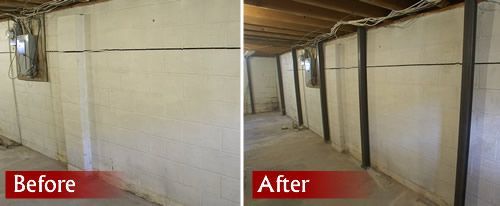
Specific Repair Solutions and Their Costs
A variety of specific repair solutions, each with its cost implications, are available to address bowing basement walls. Some common solutions include:
- Wall anchors
- Carbon fiber straps
- Helical tiebacks
- Wall straightening
The chosen solution significantly affects the overall repair cost.
Wall Anchor Systems
Wall anchor systems are a common solution for bowing basement wall repair. Installing wall anchors, which typically have a basement wall repair cost between $400 and $700 each, provide stability and security to the foundation by anchoring the basement wall to the surrounding soil.
Carbon Fiber Reinforcement
For less severe cases of bowing, carbon fiber reinforcement can be an effective and non-invasive solution. These straps, which cost between $85 to $275 per foot, are affixed vertically to the walls every 4 feet, ensuring a durable reinforcement method.
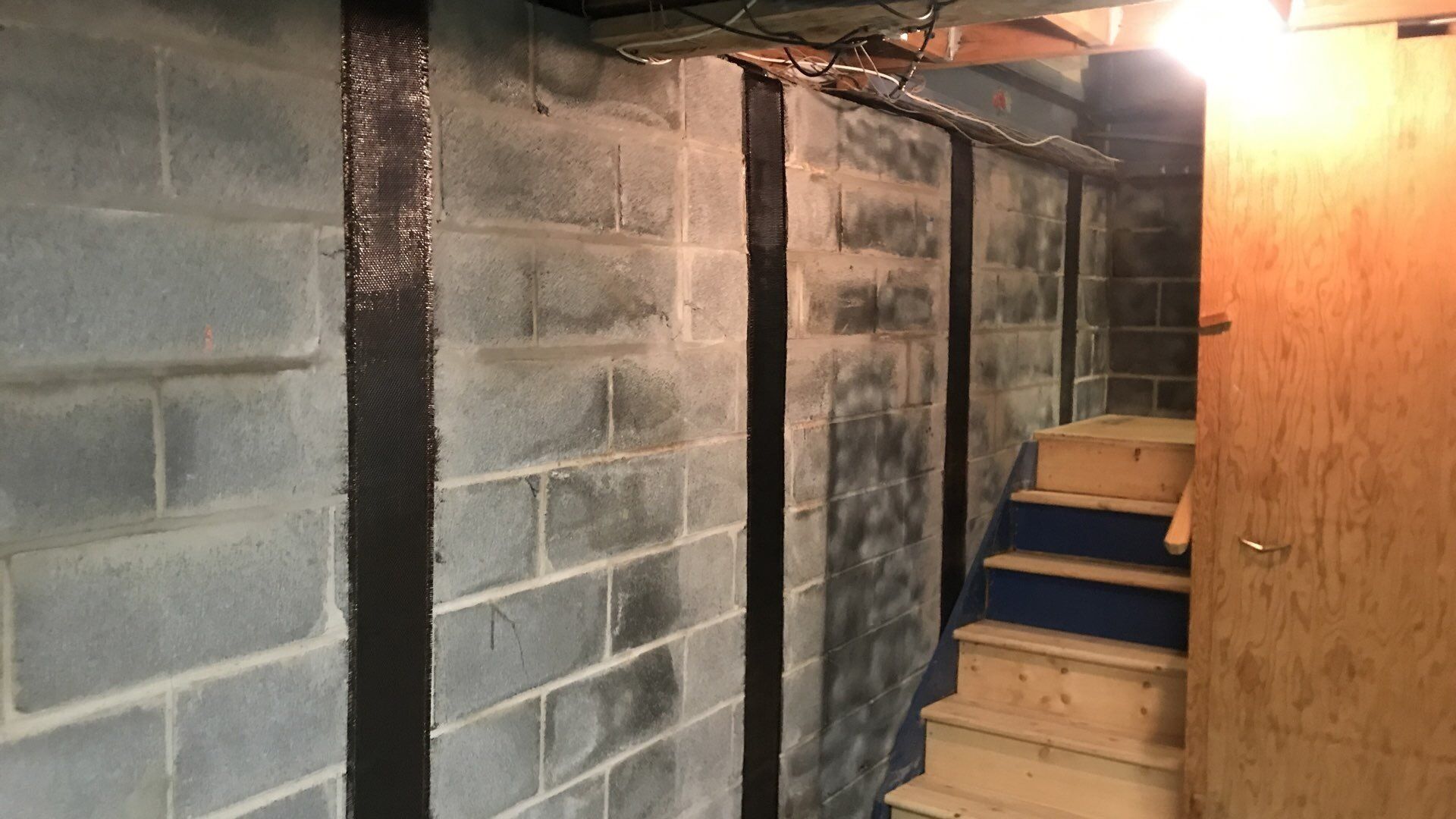
Advanced Techniques: Helical Tiebacks and Wall Straightening
For severe cases of bowing, advanced techniques such as helical tiebacks and wall straightening can be necessary. Helical tiebacks cost between $2,000 and $4,000 each, while wall straightening averages between $340 to $550 per foot.
Additional Expenses in Foundation Wall Repairs
Besides the cost of the chosen repair method, other expenses arise when dealing with foundation wall repairs. These include:
- Permits
- Ensuring all work meets local building codes
- Water damage repairs
- Installation of drainage systems
Permitting and Code Compliance Fees
Securing the necessary permits that ensure all work abides by local building codes is a key step before starting any foundation repair work. The cost for these permits typically ranges from $75 to $150.
Dealing with Water Damage and Drainage Issues
Water damage repairs and the installation of drainage systems are potential additional costs when addressing foundation wall issues. For instance, the installation of a foundation drainage system typically costs between $25 to $100 per linear foot.
Do-It-Yourself vs. Professional Foundation Repair
Despite the appeal of a DIY project, foundation repair typically necessitates the use of specialized knowledge and equipment, making it crucial to hire a foundation repair contractor.
Let’s discuss the pros and cons of a DIY approach versus hiring professional services like The Basement Ace.
The Risks of DIY Repairs
DIY foundation repair carries several risks. Not only can it be hazardous and lead to significant damage to the home, but it may also fail to address the underlying causes of wall bowing, such as hydrostatic pressure.
Plus, there’s the risk of non-compliance with building codes, which could lead to issues when selling the home.
The Value of Professional Services
Contrarily, professional services such as The Basement Ace provide comprehensive solutions for structural wall settlement, including foundation walls, thereby adding value to the repair work. Not only do they ensure a reliable and cost-effective repair service, but they also maintain clean work environments during installation processes.
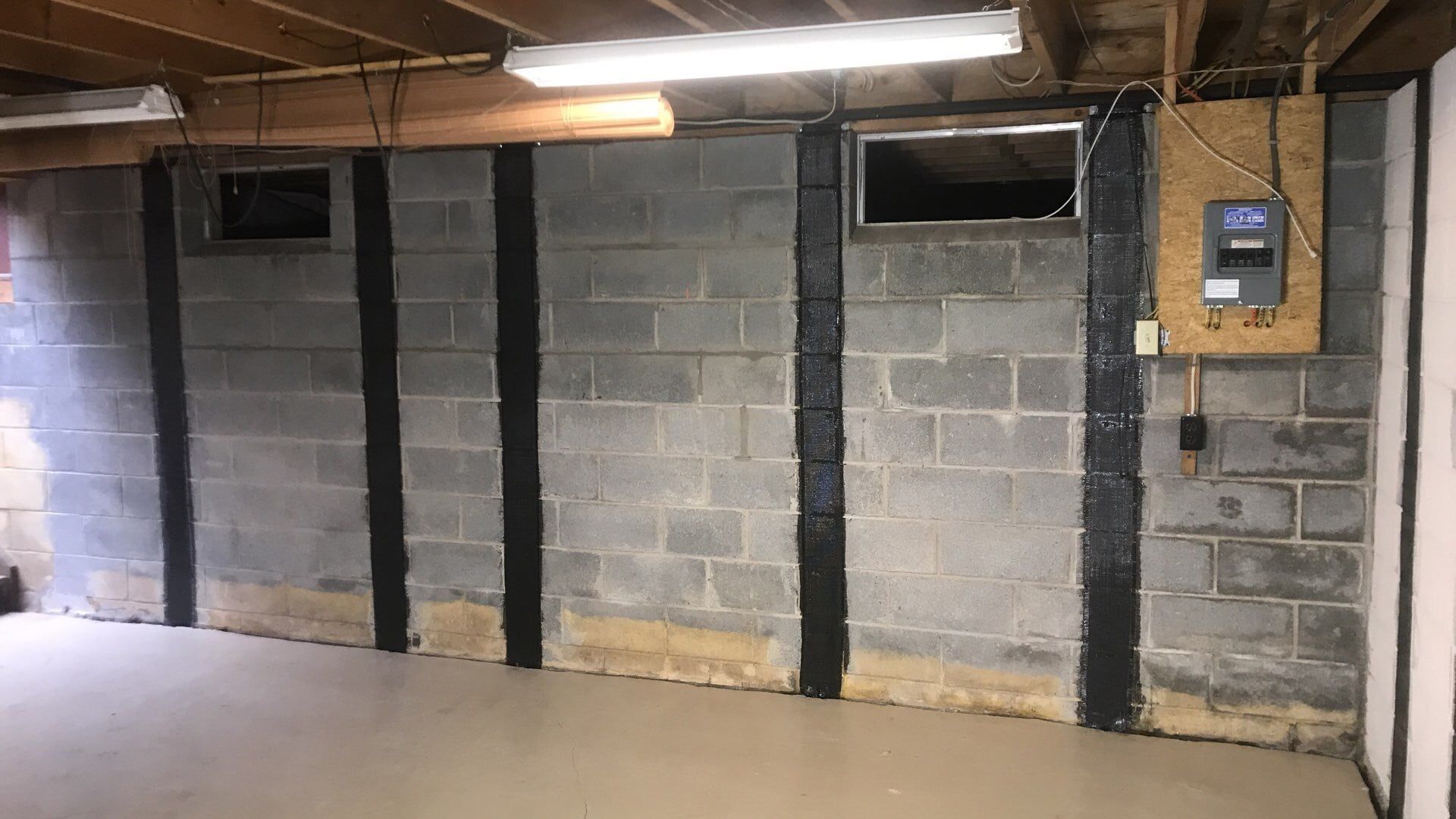
How to Save on Bowing Basement Wall Repair Costs
Financing a bowing basement wall repair can pose a financial challenge. However, there are ways to ease this burden, such as through early detection and maintenance, comparing quotes, and exploring financing options.
Early Detection and Maintenance
Early detection of bowed walls in basement walls hinges on regular maintenance and professional inspections, which can help identify bowing walls before they cause extensive damage and reduce the cost of repairs.
Visual inspections should focus on identifying diagonal cracks, a common indication of bowing, as an essential part of routine check-ups.
Comparing Quotes and Financing Options
To find a cost-effective solution for repairing bowed basement walls, consider comparing quotes from various contractors. Also, consider exploring financing options like home equity loans, which can help spread the cost over a longer period, easing the financial burden.
Leveraging The Basement Ace's Expertise
As a leader in resolving bowing basement wall issues, The Basement Ace offers a comprehensive suite of services including:
- Foundation crack repair
- Structural repair
- Waterproofing
- Stabilization
For more information on The Basement Ace’s approach to bowing basement wall repair, you can visit their dedicated service page.
Here, you’ll discover tailored solutions that The Basement Ace offers for bowing wall repair.
Summary
In conclusion, the cost of repairing bowing basement walls can be influenced by several factors, including the severity of the bowing, the chosen repair method, and the dimensions and exterior conditions of the wall. While it can be tempting to try a DIY approach, professional services like The Basement Ace offer comprehensive solutions that ensure the safety and structural integrity of your home.
Frequently Asked Questions
Can a bowing basement wall be fixed?
Yes, a bowing basement wall can be fixed using methods like c-channel wall anchors, helical tieback wall anchors, and wall plate anchor systems. It's important to consult with a professional to determine the best solution for your specific situation.
How do you fix a leaning basement wall?
To fix a leaning basement wall, you can repair and straighten it by excavating the foundation perimeter, positioning an earth anchor, preparing the foundation wall, mounting wall plates, straightening the basement walls, and cleaning up for basement finishing.
How much basement wall bowing is acceptable?
If your basement wall is bowing more than 50% of its thickness, it almost always needs to be demolished and replaced. It's important to address this issue promptly to prevent further structural damage.
What causes bowing basement walls?
Bowing basement walls can be caused by factors such as hydrostatic pressure, expansive clay soil, or frost heaving. These forces can exert pressure on the walls, leading to their bowing.
How much does it cost to repair a bowing basement wall?
The cost to repair a bowing basement wall can range from $350 to $10,000, depending on factors like the severity of the bowing and the chosen repair method. It could also be influenced by the dimensions and exterior conditions of the wall.
